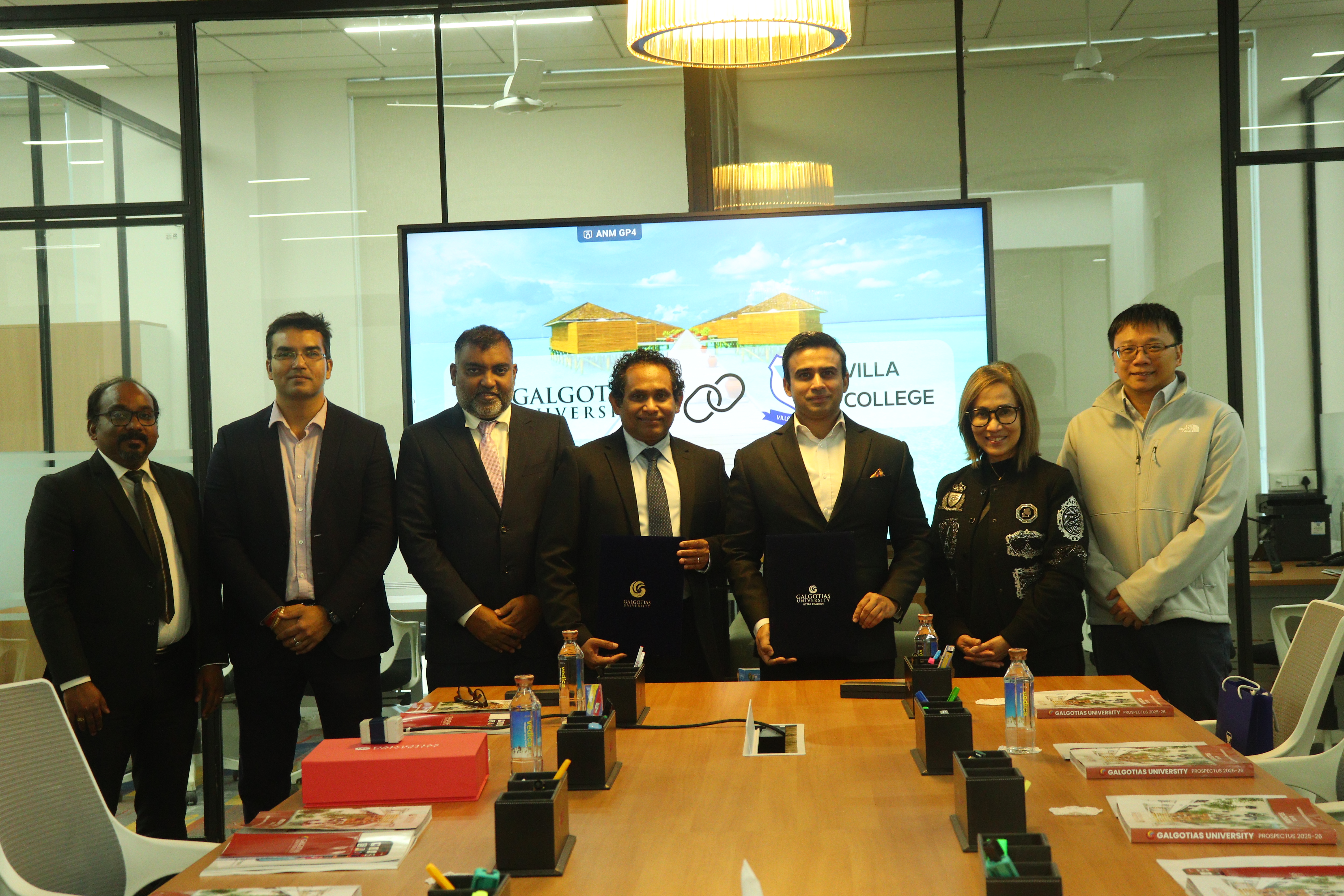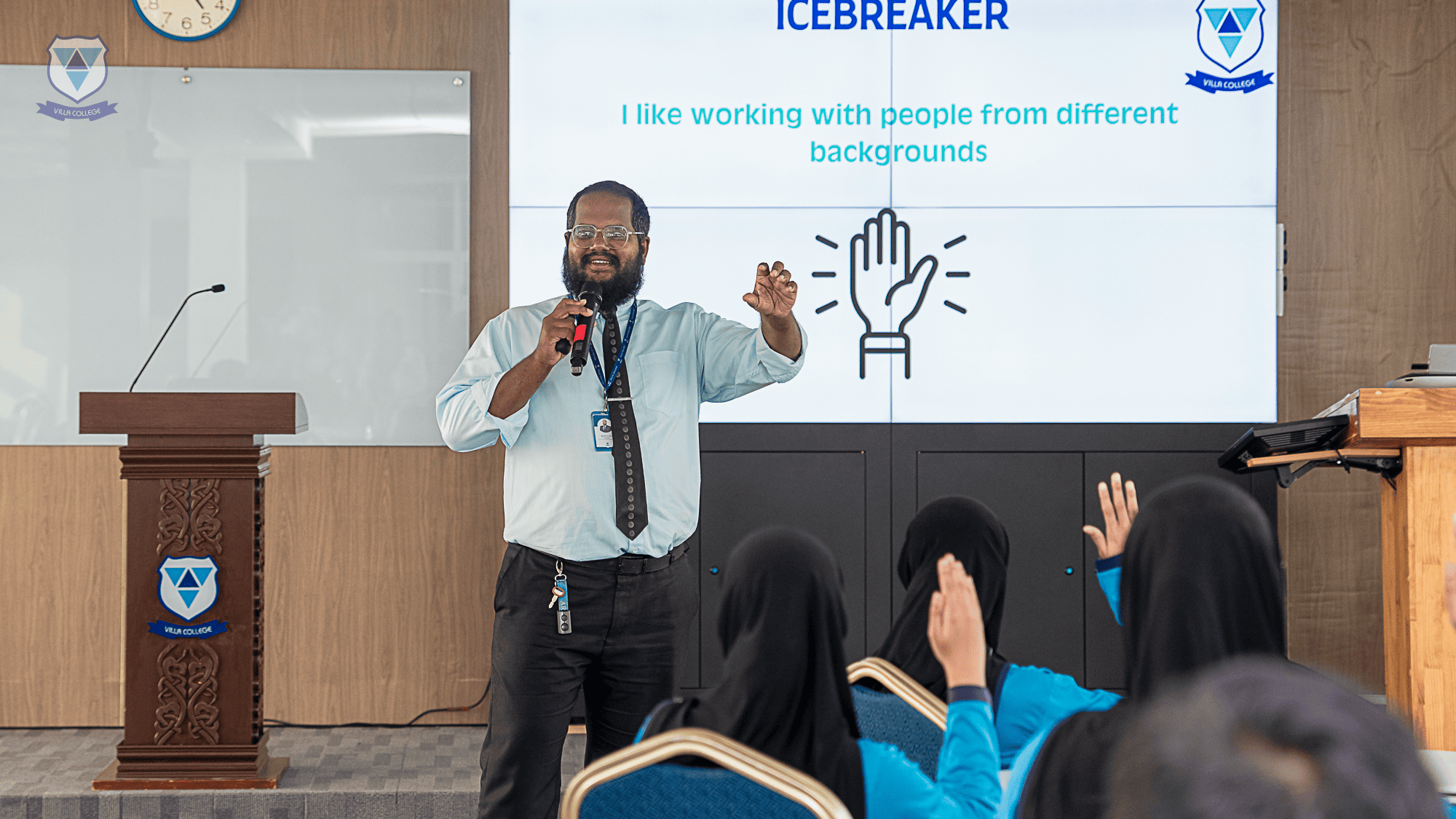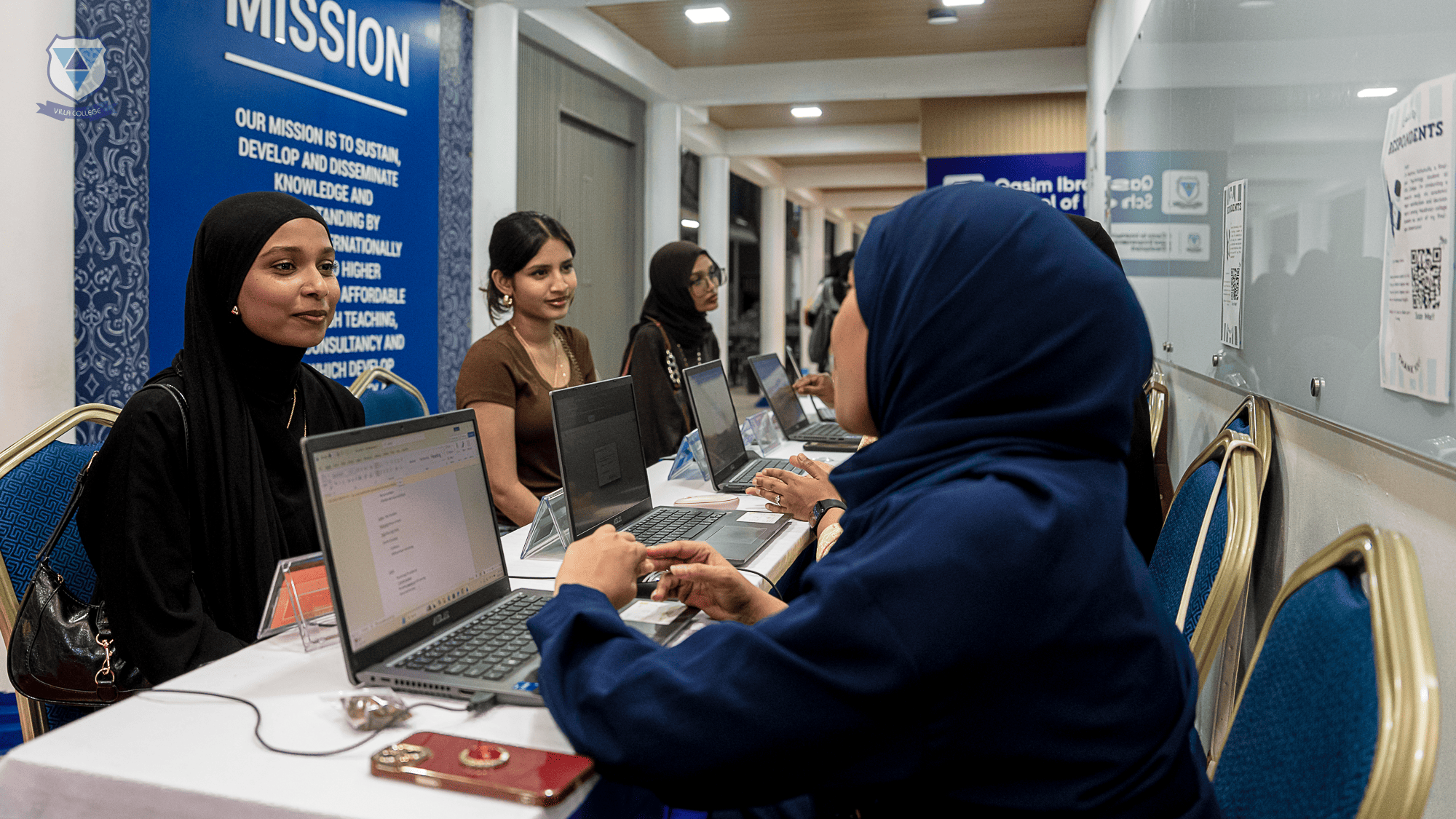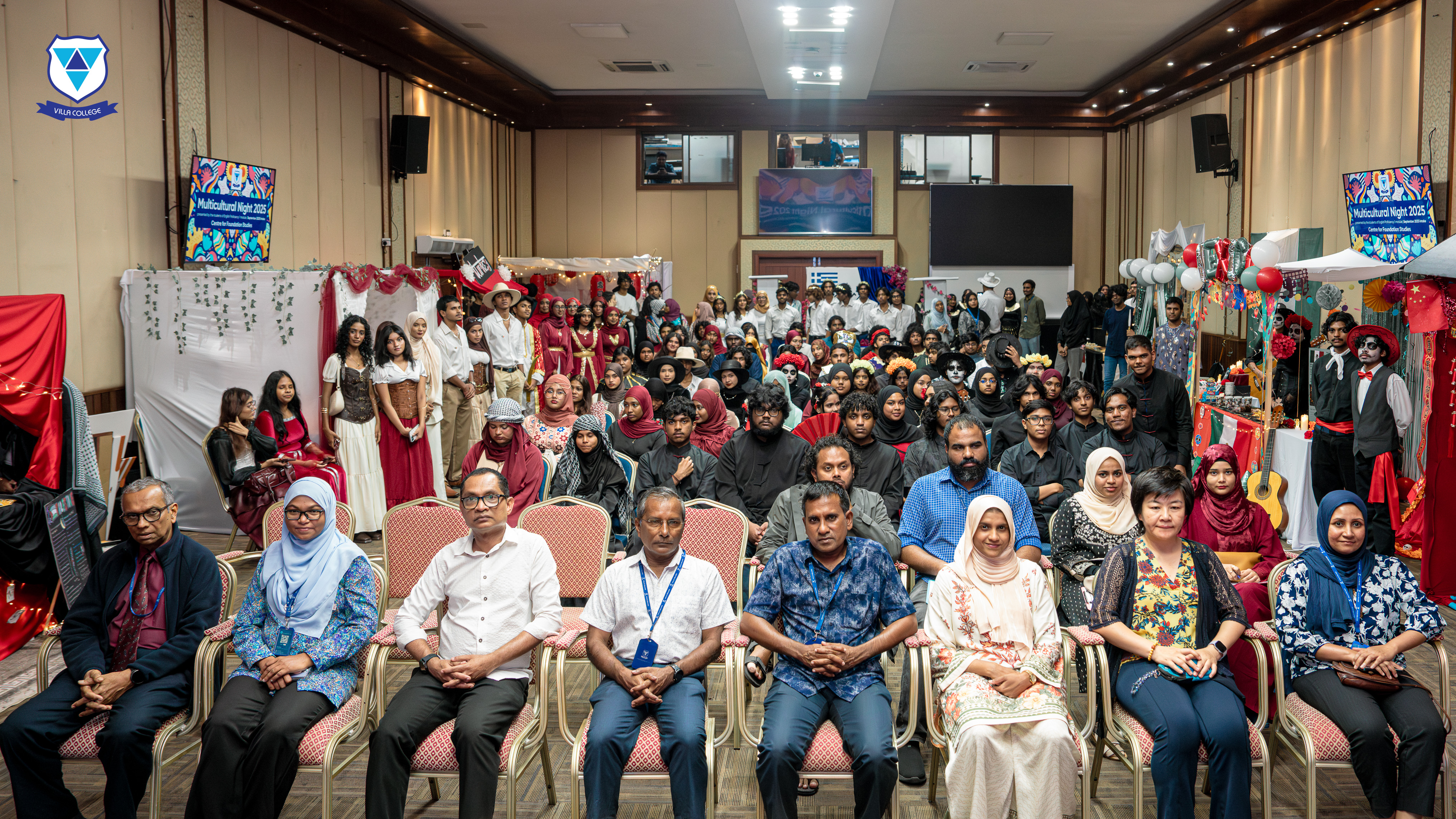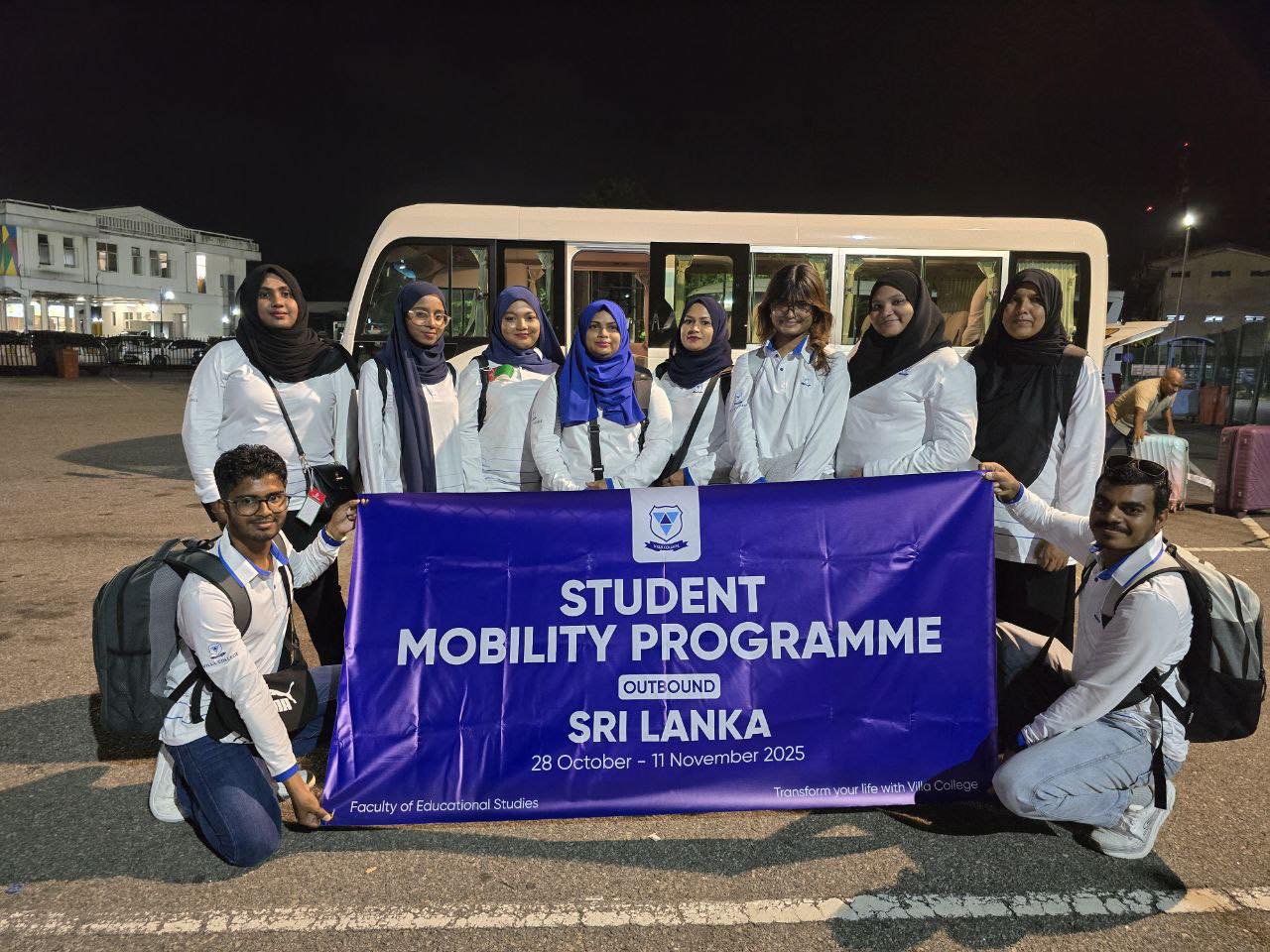
The Faculty of Educational Studies at ÃÜÌÒÊÓƵ recently celebrated the successful completion of an enriching two-week Outbound Student Mobility Programme that took our teacher trainees to Sri Lanka from 28th October to 11th November 2025. This immersive international experience represents a significant milestone in our commitment to developing globally minded educators who are equipped with diverse pedagogical perspectives and cross-cultural competencies essential for modern teaching practice.
The programme was carefully designed to provide our future educators with authentic exposure to different educational systems and teaching methodologies. Throughout their time in Sri Lanka, the trainees engaged in a series of carefully curated school visits and professional development activities that challenged their perspectives and expanded their understanding of educational practices beyond the Maldivian context. This hands-on approach to teacher education allowed our students to move beyond theoretical frameworks and witness firsthand how educational principles are applied in diverse settings with varying resources, student populations, and cultural contexts.
One of the most impactful experiences during the mobility programme was the visit to Zahira Vidyalaya School, where our trainees had the invaluable opportunity to observe Special Educational Needs classes and explore the school's Sensory Development Unit. This experience proved particularly significant as it provided our students with practical insights into inclusive education practices and the specialised support systems required for students with diverse learning needs. The trainees were able to interact directly with both SEN students and their teachers, gaining a deeper appreciation for the patience, creativity, and specialised knowledge required to create truly inclusive learning environments. Such exposure is crucial in preparing our teacher trainees to recognise and respond to diverse learning needs within their own future classrooms, ensuring that every student receives the support necessary to reach their full potential.
The programme also included a visit to Akkaraipattu National School, an institution that has distinguished itself through its robust vocational education programmes. This school caters to students from grades 6 to 13 and has developed a reputation for providing quality vocational training that prepares young people for practical career pathways. For our teacher trainees, this visit highlighted the importance of diversified educational offerings that recognise not all students follow the same academic trajectory. Observing how the school integrates vocational training with traditional academic subjects provided our trainees with valuable insights into alternative educational models that prioritise skills development and career readiness alongside conventional academic achievement.
Beyond the school visits, the programme incorporated targeted professional development workshops led by experienced practitioners in their respective fields. Our trainees attended an enlightening session on emotional intelligence facilitated by Melani H Nanayakkara, a visiting lecturer, life coach, speaker, artist, and therapeutic arts facilitator at the Bristol Institute of Business Management. Emotional intelligence has become increasingly recognised as a critical competency for effective teaching, as educators must not only manage their own emotions in challenging classroom situations but also support the social and emotional development of their students. This workshop equipped our trainees with practical strategies for developing self-awareness, managing stress, building positive relationships, and creating emotionally supportive learning environments.
Additionally, the trainees participated in a transformative workshop led by Hashini Samurdhika Silva, a lecturer, trainer, CBT therapist, counsellor, and NLP practitioner. This session focused on the powerful concept of transforming limited beliefs into positive thinking, a skill that holds profound implications for both personal development and professional practice. For educators, the ability to recognise and challenge limiting beliefs is essential not only for their own growth but also for helping students overcome self-imposed barriers to learning. The integration of cognitive behavioural therapy principles and neuro-linguistic programming techniques provided our trainees with evidence-based approaches to fostering growth mindsets and resilience in educational settings.
The Student Mobility Programme represents a concrete manifestation of ÃÜÌÒÊÓƵ's strategic commitment to internationalisation and global educational perspectives. In an increasingly interconnected world, educators must be prepared to work with diverse student populations, understand different cultural approaches to learning, and adapt their teaching practices to meet varied needs. By providing our teacher trainees with opportunities to step outside their familiar contexts and engage with different educational systems, we are cultivating a generation of educators who possess the cultural sensitivity, adaptability, and global awareness necessary for 21st-century teaching.
The experiences gained during this mobility programme will continue to influence our trainees long after their return to the Maldives. The observations they made, the relationships they built, and the new perspectives they gained will inform their teaching practice and enrich the learning experiences they create for their own students. Whether it is implementing inclusive practices inspired by the SEN classes at Zahira Vidyalaya School, developing vocational pathways informed by the model at Akkaraipattu National School, or applying emotional intelligence and positive thinking strategies learnt from expert facilitators, the impact of this programme will ripple through the Maldivian education system as these trainees begin their teaching careers.
ÃÜÌÒÊÓƵ remains dedicated to providing our students with transformative learning opportunities that extend beyond traditional classroom boundaries. This Outbound Student Mobility Programme exemplifies our belief that excellent teacher education requires both theoretical rigour and practical, cross-cultural experiences that challenge assumptions and broaden horizons. As we look towards the future, we continue to seek partnerships and opportunities that will allow our students to engage with global educational communities, ensuring that ÃÜÌÒÊÓƵ graduates are not only well qualified but also globally competent educators ready to inspire and lead the next generation of Maldivian learners.
